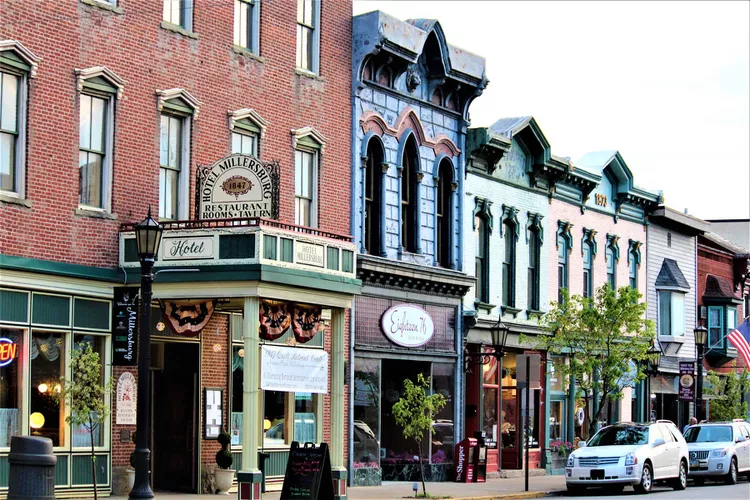1. Introduction to Millersburg, Ohio
Discover the charm of Millersburg, where the Amish way of life and local craftsmanship create an unforgettable experience.
2. Journey to Millersburg
Driving into Millersburg, visitors are greeted by laundry waving from clotheslines like streamers. The Amish, after all, don’t use electricity — not even to dry their petticoats.
Millersburg, halfway between Cleveland and Columbus, is the seat of Holmes County — home to one of the largest Amish populations in the world. It’s a real-deal agrarian fantasia: hitching posts tether horses in parking lots; green velvet hills rise from the horizon; and the pie is very, very good. (Stop by Hershberger’s Farm & Bakery for that.)
3. Local Shopping Experiences
:max_bytes(150000):strip_icc():format(webp)/cottonwood-shanty-shop-MILLERSBURG0722-751c6ba0769243bc9fc5d87bf2194407.jpg)
The beauty of the area has created a sort of boomerang effect — folks often move to larger cities but can’t stay away for long. Many, like Alyssa Eliot, run stores on downtown’s West Jackson Street that peddle more than baked goods and tea cozies. Eliot grew up in nearby Sugar Creek, moved to Pittsburgh for art school, and then returned to open the European-inflected home décor shop Cottonwood Shanty. She stocks a mix of new pieces and antiques, like vintage urns or wood-topped apothecary jars, which she sources during local picking trips. “Amish country — it’s very magical to me,” Eliot says.
4. Unique Crafts and Fashion
A couple of doors down, Lena Schlabach also spins her roots into something new at Farmhouse Frocks. Schlabach, who grew up Amish before leaving the community as a teenager, employs 30-plus Amish seamstresses to sew smart leather totes and weekend bags, along with airy linen and jersey apparel. Homegrown, yes — but far from down-home.
5. Exploring Local Artifacts
:max_bytes(150000):strip_icc():format(webp)/colonial-homestead-amish-chair-MILLERSBURG0722-04bc2963bcda4102a90df58f3b495f71.jpg)
There’s still plenty of folksiness in Millersburg, though. Check out Starlight Antiques, filled to the brim with relics of country life and works by local folk artist Billy Jacobs. The Colonial Homestead, which sells handmade furniture and historic tools for crafts like blacksmithing and leatherwork, also hosts the Artisans Guild, a cultural nonprofit that offers community workshops with the goal of preserving these heritage techniques.
